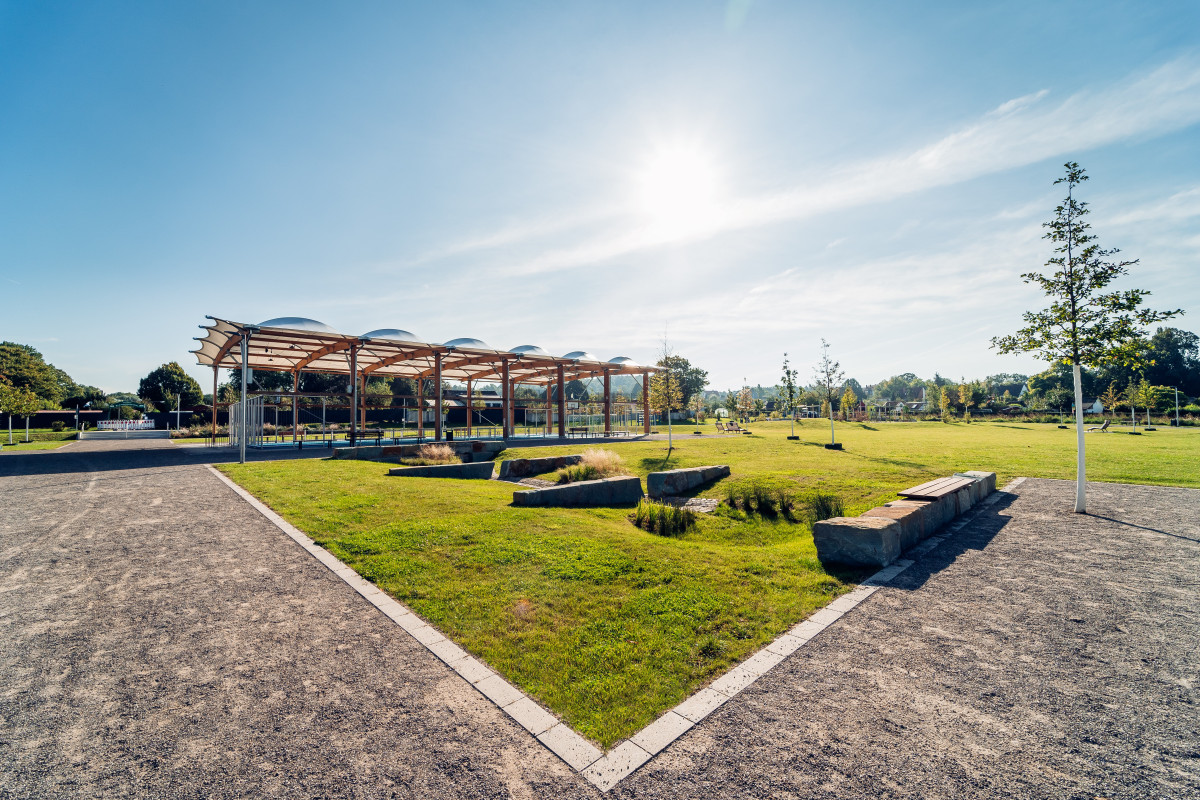Adaptation is rarely breaking news. How should journalists cover it?
***Please note: This article is part of a recap of CLEW's 10th anniversary conference ***
Read our other recaps:
The topic of climate adaptation is only gaining importance as global temperatures continue to rise. "Simply providing disaster relief is not a sustainable way to continue to deal with climate change," Eva Jensen, who heads the climate department at the European Environment Agency (EEA), said during her keynote at CLEW's 10-year anniversary conference.
As a reporter, it is easy to see that some measures (such as electricity company's decision not to put infrastructure in flood-prone areas) are straightforward no-brainers, yet sometimes adapting to the effects of climate change might mean deprioritising or even undermine efforts to mitigate global warming.
Public and private bodies alike must make difficult decisions: what to protect at all costs, and what risks are we, as a society, willing to accept. "It's really not a trivial exercise to determine what risks need to be addressed at every cost, compared to maybe other important risks that affect a particular community," Nicolina Lamhauge, policy analyst at the Organisation for Economic Co-operation and Development (OECD), stressed during her keynote.
Therefore, adaptation reporting should help society to take informed decisions. It is clear that adapting to every risk is not possible, as this would inevitably revert resources from other important priorities, but inaction is not an option either. The balance of priorities is something that we as journalists, when telling stories of adaptation, must get right.
Engaging audiences with success stories
In my time covering the topic for CLEW, I have found that successful climate adaptation requires more creative reporting, and for drastically different news headlines than we're used to seeing. We have got to report not only on the need to adapt – highlighted by the worsening consequences of climate change – but also the successful examples. We also have to keep the public interested beyond individual extreme weather events.
One of the trickiest parts about reporting on the latter, however, is that if adaptation is implemented right, a catastrophe is averted, or at least the implications of climate hazards are lower. Classic headlines — such as the lives lost to floods or the destruction following forest fires — would not materialise.
How do you tell a story about the bomb a did not go off? Would audiences still be interested? How can we best measure the impact of that which did not happen? We need to be more creative as journalists: effective climate adaptation measures offer us the opportunity to tell positive stories, to show examples of a sustainable, fair and just world – which can be just as important.
As long as we only communicate the disasters, the impossible and the expenses, people cannot handle it. They need to be able to feel that they can do something and that it is possible. And it is.
Both experts highlighted that there is tremendous value in sharing knowledge and exchanging experience, especially given the pace of change.
Journalists also play a key role in translating scientific knowledge to support an informed public debate; in educating the public in their role as stakeholders; and in holding governments accountable, both in the decisions they take to increase the ability to deal with climate hazards and the ones they do not take which delay action on climate change.
Putting adaptation on the agenda – and doing it right
The more time you spend researching adaptation, the more you realise that the impacts of climate change go beyond the obvious, cascading into economic questions or even security issues.
Many times, the cards are stacked against efforts to adapt to a warming world: most decisionmakers respond to budgetary planning cycles and don't favour long term investments, while research also shows that voters are more likely to reward politicians for delivering disaster relief rather than disaster preparedness.
Moreover, climate change is global problem. "When you mitigate, you are paying for a better world, but when you adapt, you pay for yourself," Jensen said. So what to prioritise? Jensen followed her statement by saying that the costs of the green transition are marginal, and that it is possible to spend both on mitigation and adaptation measures without "destroying our economy".
While listening to Lamhauge, and having been part of a team of journalists looking into how Europe is adapting to the consequences of climate change, I was inspired to diversify the voices in my reporting even further. She highlighted that she sees an increasing need to be more inclusive both between segments in society and between developed and developing perspectives. "The more diverse the governance on climate change is, the better," she said.
Both experts hope journalists will share the bigger picture: that while remaining critical, they will also show why action is important. They see journalists as the translators of complicated information, people with the power to educate, sensitise, but also inspire with stories of positive change.
The better the understanding of the reality is of what we are heading towards, the more honest the conversation can be.


